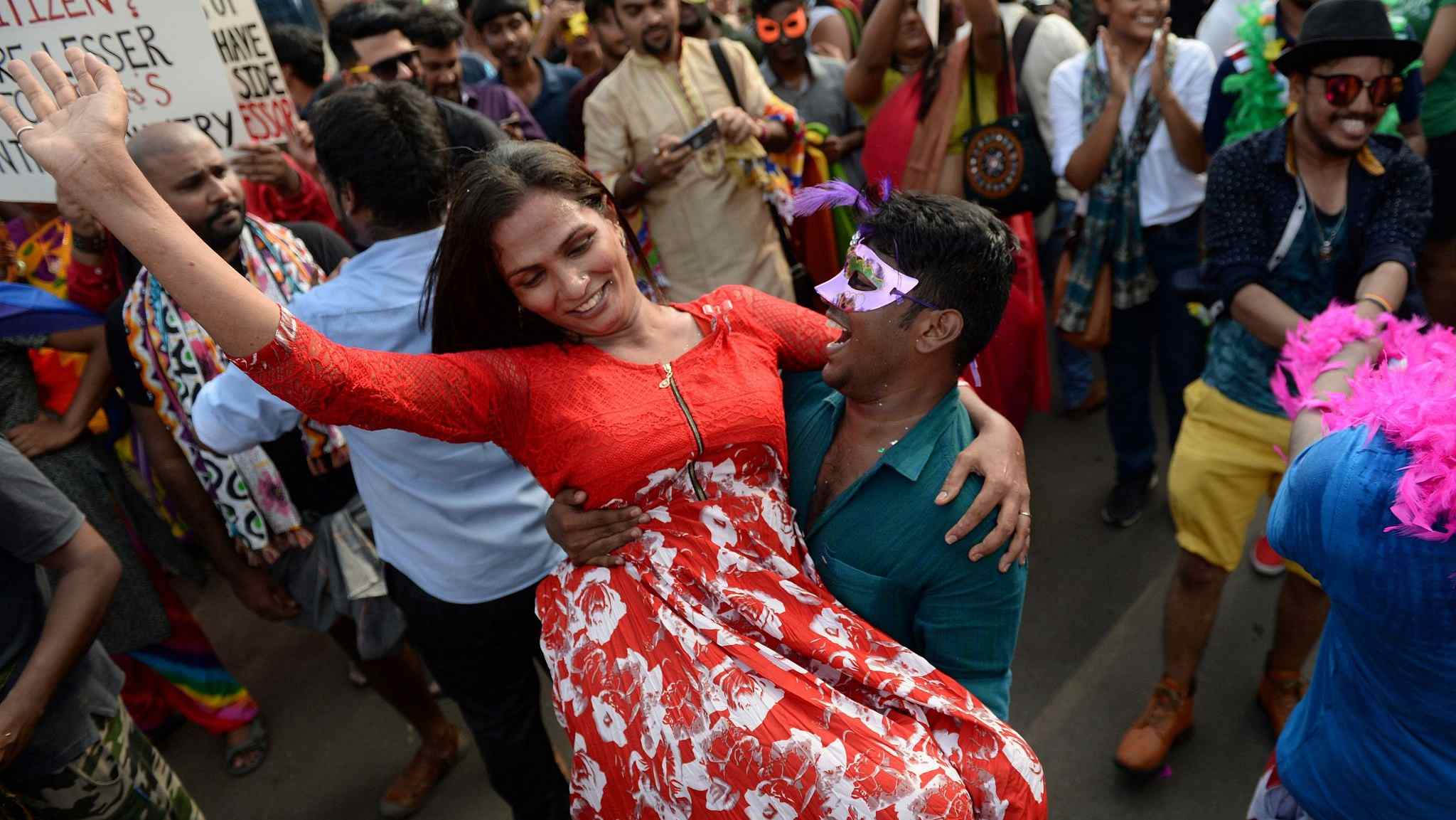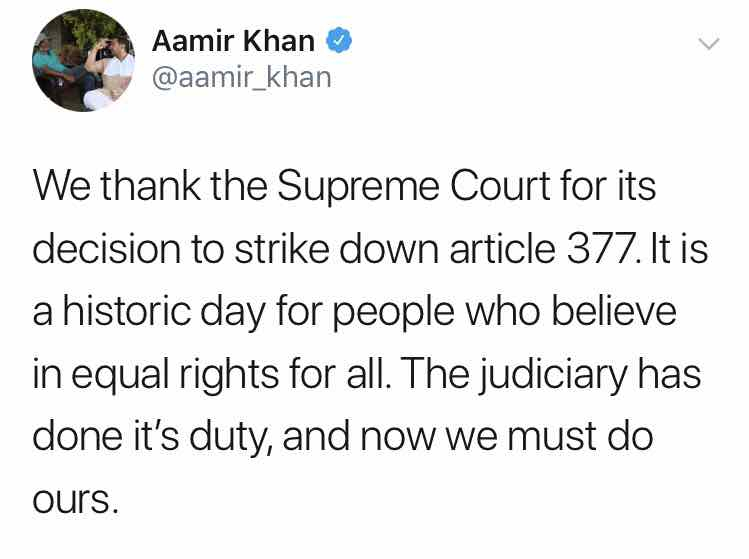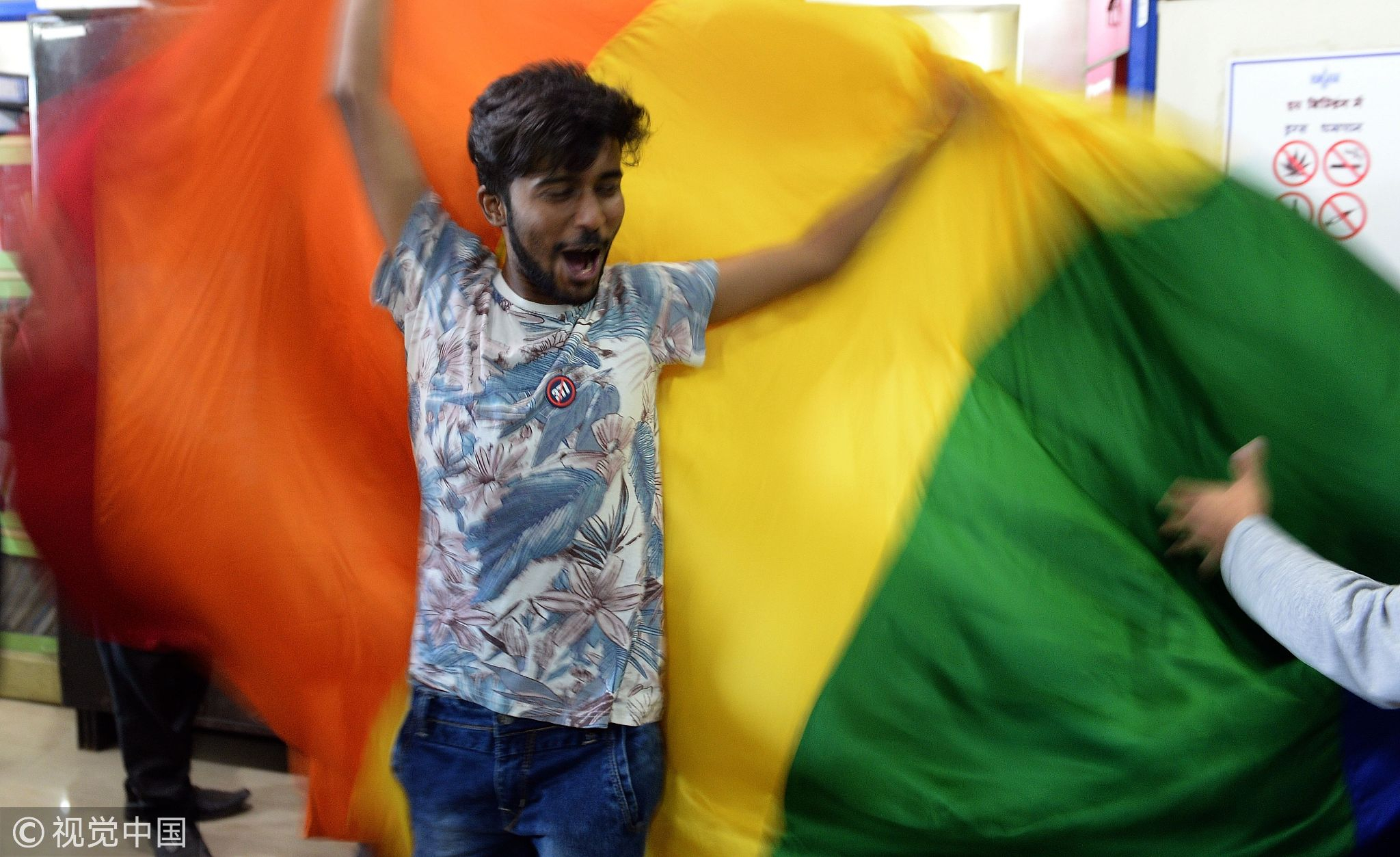
World
20:21, 06-Sep-2018
India strikes down British-era law against gay sex
Updated
19:27, 09-Sep-2018
Khushboo Razdan

"Homosexuality is not a mental disorder," declared India's top court while delivering its judgment to decriminalize consensual gay sex in the country.
The verdict is a victory for gay rights activists who have been fighting a legal battle that has stretched back decades.
In her first reaction to the historic ruling, celebrity chef and petitioner in the case Ritu Dalmia told CGTN, "I can't stop smiling, [I have] a great sense of relief, I just can't stop smiling."
"We have bid adieu to prejudices and empower all our citizens," said Deepak Mishra, India's chief justice, while reading out the groundbreaking verdict.
"It's not about decriminalizing gay sex, it's also about equal rights," added Dalmia.
The end of section 377 is the beginning of a new chapter for India, but Dalmia says that the battle is far from over: "The verdict has given us hope for the future, this is an important step in our fight against homophobia in India," she said.
Soon after the verdict, a section of Muslim clerics issued a statement saying "Homosexuality is dirty, filthy and against nature. Court has passed its order, now it's for the people to decide what they want. Islam certainly does not permit it."
Several Hindu organizations also reacted sharply against the order, calling it "a conspiracy to destroy Hindu culture."
Bollywood superstar Aamir Khan hailed the verdict, tweeting: "It's a historic day for the people who believe in equal rights for all. The judiciary has done its duty, and now we must do ours."

Bollywood actor Aamir Khan hails court's verdict on Twitter / @aamir_khan Photo
Bollywood actor Aamir Khan hails court's verdict on Twitter / @aamir_khan Photo
Long battle
The legal battle against the anti-gay law has lasted for many years. Cases dating back to the 1990s were stuck in limbo in the court system, until the Delhi High Court in 2009 decriminalized consensual gay sex.
However, the ruling was later overturned by the Supreme Court, India's top judicial body, after petitions from different religious groups.
"2009 was a great year, suddenly so many people started coming out, but soon they were forced to go back into hiding," Dalmia said.
Government's stand
In April 2018, the Supreme Court called for the Modi government to file its response to petitions seeking the decriminalizing of "unnatural sex." Leaders from the ruling BJP, Prime Minister Narendra Modi's party, had in the past expressed differing views on the matter.
In July, a BJP MP in the upper house of the parliament called homosexuality a "danger to national security."
The Modi government filed an affidavit putting the onus on the court to decide the matter. "The Union of India would leave the said question to the wisdom of this Hon'ble Court," stated the affidavit.

An Indian gay rights activist celebrates after the country's Supreme Court agreed to review a decision which criminalizes gay sex, Mumbai, Feb. 2, 2016.
An Indian gay rights activist celebrates after the country's Supreme Court agreed to review a decision which criminalizes gay sex, Mumbai, Feb. 2, 2016.
'History owes us an apology'
With the landmark order, India buried one of the most glaring traces of its colonial past. In striking down the 150-year-old Article 377, a controversial British-era law that bans gay sex, the court declared it arbitrary and irrational
"History owes us an apology," an emotional Dalmia told CGTN.
36 former British colonies still have laws that criminalize homosexuality, 31 of those have laws based on the original colonial anti-LGBT legislation. According to India's official crime records, over 2,000 case were filed under the law in 2016 alone.
3792km

SITEMAP
Copyright © 2018 CGTN. Beijing ICP prepared NO.16065310-3
Copyright © 2018 CGTN. Beijing ICP prepared NO.16065310-3